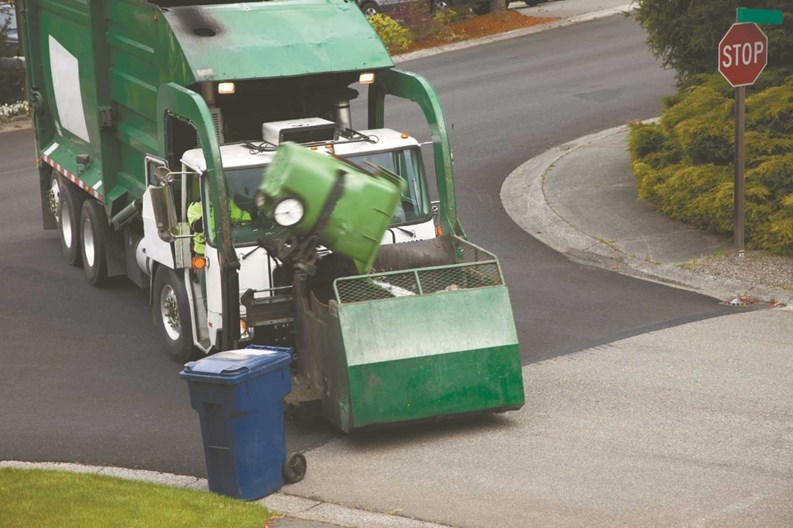Generally speaking, the issue of municipal services—snow removal, paving, garbage collection, etc.—as they apply to HOAs is pretty cut-and-dry: municipalities receive money directly from owners in the form of property taxes. HOAs budget for snow/ice removal, and other similar services on an annual basis and then set the monthly fees or levy special assessments on owners accordingly. Occasionally however, questions do arise, and like any gray area where money and legal responsibility converge, debate can quickly devolve into argument.
One recent example of this is the case of Mendham Knolls Condominium Association in Mendham. Access to the condo grounds is achieved only via Boundary Oak Lane, a 156-foot-long road that empties into the condominium’s parking area. Conflict arose over who was responsible for either maintaining Boundary Oak Lane or paying to have it maintained—Mendham Knolls, or the Township of Mendham itself? That question eventually pitted the HOA against the town, and landed the issue in court.
According to David Byrne, an attorney with the Lawrenceville-based law firm of Stark & Stark, who represented the condo association in the case, the town of Mendham argued that it was not obligated to provide either services or reimbursements to the Mendham Knolls HOA because Boundary Oak Lane was really more of a driveway— and the town doesn’t service private drives.
On the other hand, the condominium argued that Boundary Oak Lane is a road, and thus eligible for services and/or reimbursements like any other road in the township’s jurisdiction. The legal situation quickly turned sticky.
The Basics
Before getting into how the conflict in Mendham worked out, it’s instructive to delve a little further into the laws in question in the case.
“New Jersey’s Municipal Services Act—or ‘the Act,’ as it’s often called— provides for certain services or reimbursement for the cost of services to a ‘qualified private community’ in the same fashion as the municipality provides these services on public roads and streets,” says Byrne. The Municipal Services Act turned 18 in 2009, and today New Jersey is still the only state in the U.S. with such a statute.
According to Byrne, only private communities deemed “qualified” are entitled to the benefits of the act. Qualified communities could be “a condo, HOA or the like, whose residents don’t receive any tax abatement or tax exemption related to its construction, and where the cost of maintaining roads and streets and providing essential services is paid for by a not-for-profit entity consisting exclusively of unit owners within the community.” Byrne points out that the law excludes “apartment” buildings from this definition.
According to Byrne, “With the Act, the state legislature intended to help eliminate double payment for some services which the residents of qualified private communities now pay through property taxes and fees to their associations, and ‘to relieve condominium owners of the burden of paying twice for municipal services.’ And that’s the light in which the act has been interpreted over its 18-year life.”
Case Studies
Once the Municipal Services Act was ratified, New Jersey’s qualified private communities and its municipalities began a statewide joust over the law’s true scope, and how it impacted each party’s rights and responsibilities.
According to Byrne, one such showdown occurred in the Township of Vernon. Great Gorge Village, an HOA consisting of six separate condo communities, sued the township for not providing or reimbursing for statutory services. For its part, Vernon’s argument was not so much that it wasn’t obligated to provide the services, but rather that the Municipal Services Act was more limited in scope than Great Gorge Village contended.
The township believed that its reimbursement duty was limited to the equivalent cost to plow its own municipal roads, which were easier to plow than those in Great Gorge Village. Since “on average, the municipal roads can be plowed more efficiently on a less costly basis” than those in the condo development, the township argued that it should not have to reimburse Great Gorge Village’s more expensive snow removal costs, but owed them only as much as the township paid for its own road-plowing.
The Appellate Court disagreed, finding that a municipality must make reimbursement so that it can provide condo communities the services—again, “in the same fashion” as those services are provided on the public roads and streets. In this instance, even though Vernon’s roads outside of the Great Gorge Village association “were less difficult to plow,” than those inside the association, Vernon was not permitted to limit reimbursement to the amount incurred for plowing its ordinary township roads.
Byrne also points out an important fact in the Vernon case: the Appellate Court let stand the trial court’s decision that 6.38 miles worth of roads within the condo association were “used as a basic way to facilitate vehicular traffic.” Thus making them, in fact, roads—not driveways or parking lots, as the Township of Vernon contended.
Two years later, the Appellate Court addressed another longstanding dispute between a private community and its municipality, this time between Freehold and the Briarglen II Condominium.
For years, Freehold required developers to provide snow and ice removal services in a new condo community until the township granted “acceptance” of the roads. Of course, Freehold—along with other municipalities—used such agreements in relation to residential communities that were not “qualified private communities.” In the case of Briarglen II and many other newer associations, developers simply delegated their obligations for things like snow and ice removal service to the qualified private communities they were creating. However, says Byrne, Freehold itself decided when the roads in question would be “accepted,” thus essentially insulating itself from its obligations under the Act.
According to the township’s interpretation of the Act, a municipality is not legally obligated to provide services or reimbursement “until…the roads meet all municipal standards.” Briarglen II argued that the limitation applied only to a municipality’s provision of services—not to its reimbursement obligations.
According to Byrne, the Appellate Court considered the state legislature’s intent when creating the Act—to “help eliminate double payment for services”—to resolve this statutory interpretation problem. “The legislative intent, together with the canons of statutory construction, compelled an interpretation by which a municipality is not freed from its reimbursement obligation,” says Byrne, “even when the road in question has not been accepted for public use, or does not ‘meet municipal standards.’”
The court next addressed Freehold’s attempt to pass the obligation to provide services under the Act to the association’s developer. The court rejected Freehold’s attempted delegation as the “legislative purpose would be frustrated if municipalities were permitted to contract away their statutory duty to either provide or reimburse qualified private communities for the enumerate services.”
Another case of particular interest to lawyers representing developers, municipalities and private communities is the Supreme Court’s decision, six years after Briarglen II, validating the Borough of Oakland’s attempt to shift its financial liabilities under the Act to a residential developer under a development agreement containing an indemnification clause. The issue arose when Oakland did not provide the large Ramapo River Reserve homeowners association with, nor reimburse it for, the services contemplated by the Act. Prior to the sale of the first home in the Ramapo River Reserve development, Oakland and Baker Residential, LP entered into a development agreement requiring Baker—until “such time as” it completed “all of the roadways, and the Borough has accepted the same”—to be responsible for maintaining the roads and keeping them snow- and debris-free. The development agreement also obligated Baker to “defend, save, indemnify and hold harmless the Borough …from any all claims, actions .... charges, debts .... and counsel fees .... from the .... performance of the terms hereof ...”
By 2002, Ramapo River Reserve filed a suit against Oakland seeking damages for the municipal services not provided, and an order compelling Oakland to comply with the Act going forward. Oakland counter-filed, denying liability under the Act, and seeking payment from Baker Residential for any damages Oakland might have to pay Ramapo River Reserve.
The trial court ultimately ruled that Oakland had in fact violated the Act by neither providing snow/ice removal services to the association nor reimbursing the association for its costs incurred to provide those services to its residents itself. For its part, Baker Residential filed a cross-motion to invalidate the relevant portion of the development agreement. The trial court, later affirmed by the Appellate Court, granted Baker’s motion, invalidating that portion of the development agreement by which Baker could have been obligated to perform Oakland’s obligations under the Act. According to Byrne, both decisions were largely based on the judgment in the Briarglen II suit.
Impact on HOAs
So what happened in the Mendham Knolls case this summer? “The court first found that the applicable road-related standards were those in place currently—not at the time of the road’s original construction,” says Byrne. “It ruled that Mendham must comply with the Act with respect to Boundary Oak Lane.”
“Mendham will now remove the snow and ice from Boundary Oak Lane, as well as reimburse Mendham Knolls’ related street lighting costs,” Byrne continued. “This will certainly help the community balance its budget in upcoming years without having to resort to assessments.”
While the Mendham Knolls case didn’t set any official precedents—“at least not in the sense that other judges have an obligation to do the same thing,” Byrne says, but it is useful. “It’s another example of the way to interpret the law, which is to the benefit of the private community. That recent victory won’t have any precedential value, but I can use it both formally and informally with other trial court judges as ‘persuasive’ authority. The bottom line is, condominiums and associations must assert their rights under the Act even in the face of often dismissive municipalities.”
David Byrne, Esq. is an attorney shareholder with the Lawrenceville-based law firm of Stark & Stark, and Hannah Fons is associate editor of The New Jersey Cooperator.







2 Comments
Leave a Comment